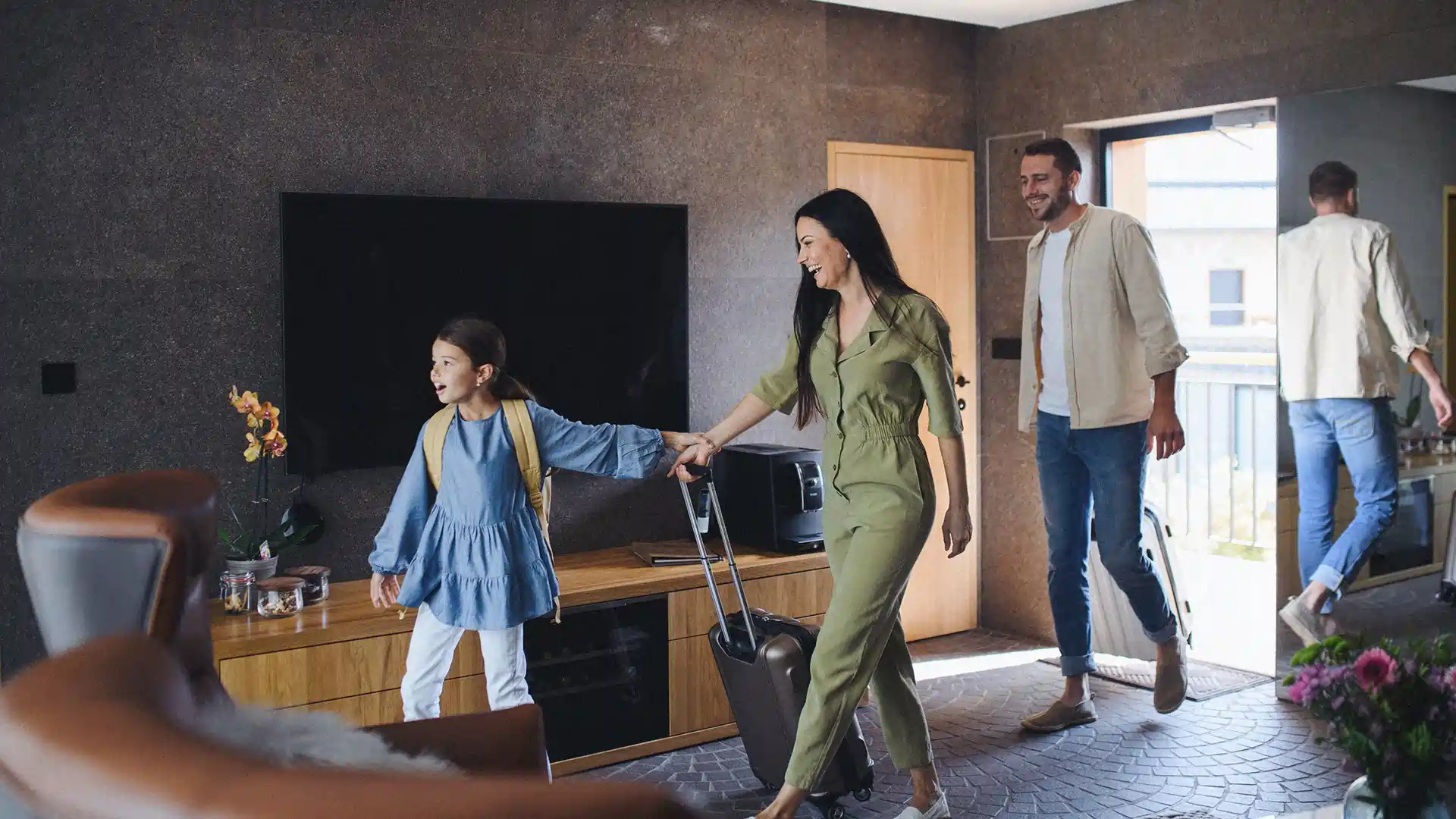Folks, we’re one step closer to those dreams of a White Lotus-like vacation actually coming true. Luxury hotel owners and operators today are searching for ways to make a high-end experience accessible to more travelers up and down the economic ladder.
Why? Leaders in the space say traveler demands are evolving rapidly. Consumer spending spiked after the COVID pandemic, but with that trend mostly behind us, now travelers across all spectrums of the economic scale are seeking value for their spend.
To accommodate this shift, the vibe behind a luxury hotel experience has evolved quite dramatically. Once conjuring up images of gold-leafed trim, oversized chandeliers and concierges in tuxedos, today’s luxury hotels seek to provide guests with an experience centered on self-care, with relaxation, personalization and wellness at the core.
Some of the top luxury hotel leaders in the industry gathered at the International Luxury Hotel Association’s INSPIRE conference in Miami last week to discuss how their companies are adapting to these changes and providing unmatched guest experiences while still driving profits.
“The idea of luxury from the 1980s is not the same as today, and we as an industry need to change,” said Gamal El Fakih Rodriguez, VP of Operations for Marriott International’s luxury division. “You don’t have to fly first class to stay in a luxury hotel – instead, luxury today is about providing a personalized and sustainable experience that allows the guest to become the best version of themselves.”
“There’s old money and there’s new money, and today they both want value,” added Raul Leal, CEO of SH Hotels & Resorts. “These travelers want more activation, more activity, and moving forward luxury brands are going to have to stand for something.”
Wellness Rises to the Top
In many ways, the luxury hotel segment is leading the charge toward more sustainable hotel operations. Luxury hoteliers can afford to put more revenue back into things like organic foods in the F&B outlets, non-toxic uniforms for property-level staff, and high-end water filtration systems throughout their hotels.
But Leal argued that change is not so much a dollar investment as it is an investment toward a cultural shift. “The world is getting more fit and as hoteliers we need to adapt,” he said. “Wellness doesn't mean you have to have a 10,000-square-foot spa and a 25,000-square-foot fitness center, it just means your guests are more informed and focused on living healthier… which I love.”
Leal joined SH Hotels in August 2021 after helping launch Virgin Hotels as a purpose-driven company focused on operating differently to make a positive impact on the industry. There are now eight Virgin Hotels in key cities throughout the world, as well as four Virgin Select properties.
“We want to make a big difference with the planet and the communities we serve, and it’s that purpose that drives everything we do,” said James Bermingham, CEO of Virgin Hotels. “Everything we do is heartfelt, from sustainable development to service to design to technology.”
Personalized Guest Marketing
Luxury hotels require a personalized experience across the entire guest journey, and speakers at INSPIRE focused much of their attention on the booking experience.
At Playa Hotels & Resorts, spanning 26 all-inclusive properties, the goal is to drive more than 50% of business through direct channels, said Bruce Wardinski, Chairman & CEO. This is done by shifting focus from tour operators to guests and building a direct relationship no matter what the booking channel. Playa is currently the only third-party operator of Hyatt’s all-inclusive resort brands, Ziva and Zalara.
“We’re going to add a brand to capture that customer, sell directly to the traveler, and drive ADR with great customer service,” Wardinski said.
Other valuable insights from Wardinski:
- Playa considers its competitive set to include “any vacation anyone goes on in the world”
- Consider different advertising channels, because “the future customer doesn’t watch cable TV”
- Discounting doesn’t drive traffic
Ron Pohl, president of WorldHotels, said Artificial Intelligence will enable luxury hoteliers to create unforgettable experiences for their guests.
“It’s about using data to craft experiences,” he said. “With data, we can predict customer preferences, market trends, and the evolving needs of our clients and their expectations. We can use it for operational efficiencies and cost savings, and we can eliminate bottlenecks in our processes.”
To that end, Bermingham discussed the evolution of Virgin Hotels’ app, Lucy, a preference-based loyalty program that gathers guest information – such as pillow preferences and what guests like to eat and drink.
“Through the same app that you make your hotel and dinner reservations, you can also check in digitally and completely bypass the front desk, if you so choose,” he said. “It’s not at all aimed to replace the interaction with a hotel employee, but it’s aimed at making the experience easier when necessary.”
Labor Issues Persist in Luxury Hotels
At Marriott, which currently has 42 luxury hotels and a pipeline of significant growth in the Caribbean, the focus is on attracting, training and retaining employees.
“We need the labor to run these new hotels,” Rodriguez said. “We need to understand how to better connect with the new generation. We need to appeal – to connect emotionally – with millennials, to get them to come work for us.”
He said while compensation is important, money is not the sole motivator. Team members need to feel like they’re making an impact and providing value.
Graeme Davis, President at Baha Mar, a resort complex in the Bahamas that includes Grand Hyatt, SLS, and Rosewood-branded properties, said the most important aspect of attracting talent is building the right culture.
“Putting your employees No. 1 – even ahead of your guests – will make sure they’re inspired to come to work everyday,” he said. “And if the employees are happy, the guests will be happy.”
For example, Bah Mar offers its employees:
- Free medical insurance for every associate
- Complementary cafeteria food
- Starbucks in the back office, where everything is at cost or no cost.
At the Thompson Buckhead in Atlanta, Jason Bass, Director of Culture and Programming, said he’s increasingly looking to technology as a resource to help team members have a bigger impact on both guests and operations.
“As an industry, we’ve traditionally been very customer centered, but not employee centered,” he said. “We wouldn’t let a guest take three steps to do anything, yet we let our employees take 12 steps to build a report.”











